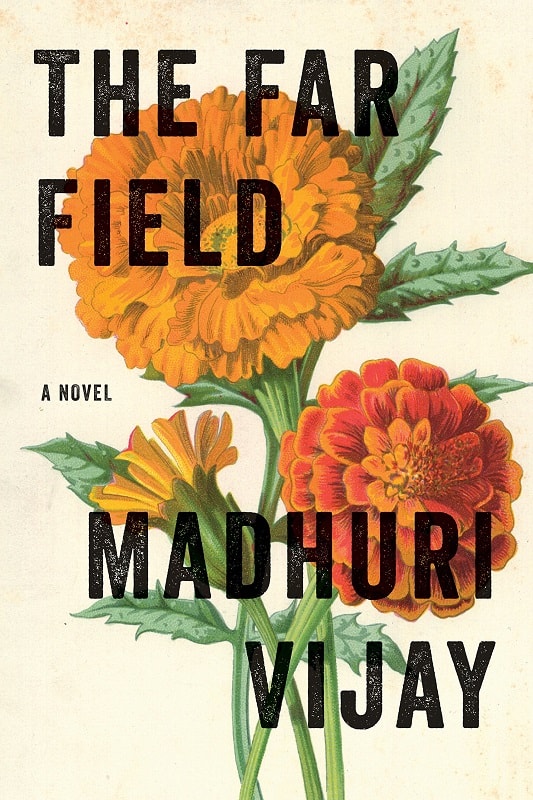PLOT: 3.5/5 CHARACTERS: 3.5/5 WRITING STYLE: 4.5/5 CLIMAX: 3/5 ENTERTAINMENT: 4/5
My Musings
Ever since the longlist for the JCB Prize for Literature for the year 2019 was made public, I had been meaning to pick up the books that had managed to make it to the prestigious list.
After a few days of procrastinating, my first foray into last year’s longlist is the debut book of author Madhuri Vijay, The Far Field. Read on to know more about what I think of the book and how good or bad was my experience of reading it.
What to expect?
Expect a book that is rich in language and adorned with a beautiful prose. Expect a book that is a lengthy and sometimes slow read. Expect a book that lacks much in terms of plot but tries to make up for it with a narrative that is laced with beauty and pathos.
Expect a book that tells us the story of Kashmir from the eyes of those who still call it their home. And finally, expect a book that can only be classified as a literary read.
Who can read?
Since the language of the book is very rich and makes use of complicated words, I will only recommend it to readers who are well versed in English. Beginner level readers would do best to stay away from the book.
Let’s talk about the storyline
Shalini, a young and confused Bangalorean decides to revisit the old memories of her mother and as a result she suddenly quits her job and packs her bags to go to Kashmir in search of a man known to her as Bashir Ahmed.
All throughout her childhood, Bashir Ahmed was a regular phenomenon in Shalini’s home; filling her mother’s dull life with his ambient tales and carefree laughter. In fact, he was the only man, as Shalini recalls with utmost clarity, who was able to rein in her mother’s eccentricities.
Much later, as the state of Kashmir grapples with terror and the surge of militancy, Bashir Ahmed’s visits to their house become less frequent before finally coming to an abrupt end. Years later, a sudden desire wakes Shalini from her inertia and compels her to undertake a search for that elusive hero of her childhood – Bashir Ahmed.
What follows is a tale that shatters all notions and breaks stereotypes, that inevitably criticizes the errors of human beings and vividly portrays a grim landscape that still survives, often reliving the horrors that were once committed on its soil.
How good is the writing style?
Madhuri relies on her language to accentuate her narratives but that does not compensate for the lack of a solid plot. The book seems random at times and stretched at others. It often takes the reader to unchartered territories but all it manages to achieve is familiarize the reader with the quintessentially Kashmiri villager and his chaos engulfed life.
With the sole power of her vivid descriptions and attention to details, Madhuri shows us a very beautiful Kashmir – one that the reader will surely be excited to go and see for herself someday.
Are the characters good?
The characters of the book often end up being highly irrational and poor in their judgment of others. Most of the characters are unimpressive in their conduct and charm. While more than adequate attention has been given to Shalini, many others have a presence that can be best termed as fleeting.
What did I not like?
The book sometimes tries too hard to be impressive. In doing so, it tries to compensate for what it lacks in terms of a solid plot and dynamic characters with more and more of Madhuri’s beautiful writing.
The Far Field also attempts to be unbiased but, in the end, it inevitably ends up being the exact opposite. In showing us the other side of the narrative, it conveniently washes over the crimes of many of its characters.
Is the climax good enough?
The climax is probably the most mediocre thing about The Far Field. It is dull, unpredictable and somehow fails to satisfy the reader with a definitive conclusion. The climax is also very disconnected and incongruous from the rest of the book and seems to have been put together in haste.
It all boils down to the entertainment quotient
The Far Field does not lack in entertainment quotient. It is a book that brings out beauty in the most mundane of things and in the most ordinary of activities while very aptly embellishing what is already known to be beautiful. It is not a book meant for everybody but whoever will end up reading it will be stunned by just how beautiful Madhuri’s narratives are.
In the end
In the end, the book does make for an impactful read; one that shows us a different side of the Kashmir equation while trying hard to evade the blame game that it inevitably ends up being a part of.
The final verdict
Read it!
Pick it up
- If you want to read books that have been longlisted for the JCB Prize for Literature 2019.
- If you like books that have beautiful language and a rich prose.
- If you are looking for a story that shows us a hitherto unseen side of Kashmir.
- If you enjoy books that are slow but intense at the same time.
Skip it
- If you are picking the book up because of the recent hype that surrounds it.
- If you are looking for a fast-paced read.
- If you don’t like books that are sometimes too tiring to read.
- If you are looking for a rather unbiased narrative about the Kashmiri story.
Can’t wait to read it? Buy your copy of The Far Field using the link below.
